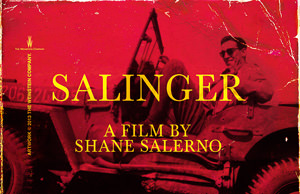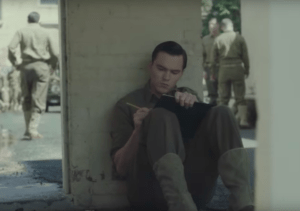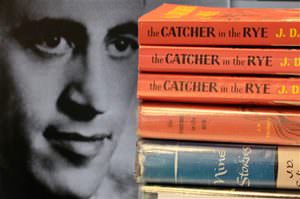Don’t Make a Phony Out of J.D. Salinger
A new documentary wants to find some hidden wound that "explains" the novelist's reclusivity, but I don't think there is one.
According to Shane Salerno’s long, occasionally interesting but rarely compelling documentary about J.D. Salinger, the writer sold some $60 million worth of his only novel, “The Catcher in the Rye,” which continues to sell about 250,000 copies annually. This is what happens when a book ceases to be a purely literary phenomenon and becomes — what? — a rite of passage, I guess. It’s one that after more than 60 years has yet to lose its hold on the minds of adolescent Americans desperate not to be understood as “phony.” Oddly, one does not begrudge Salinger this astounding success. “Catcher” is quite a good novel — funny, acute and about as astute a portrait of a kid simmering in his own sensitivity as we are ever likely to have. In the documentary, a few literary types attempt to rain on its parade, but to no avail. Like most popular works of fiction that survive their season, it is a solidly crafted and enjoyable novel.
For what I assume are legal reasons, the documentary quotes only occasionally from the sacred text, but not to worry. There is the author’s long, odd life to preoccupy the filmmakers. They hold that World War II was the central trauma of his life. He had a long, hard war and it scored him, as it did so many others. Salinger was already a published writer of short stories, carrying several chapters of “Catcher” around with him, yearning to be published in The New Yorker. After the war, he was married briefly to a German woman — probably a Nazi sympathizer — and attempted to lead a normal New York sort of young writer’s life — jazz clubs, girls, abundant good nature, as far as we can tell. I knew people who hung out happily with Salinger in those days and they testify to the ordinariness of his life. Which, of course, inevitably changed with the success of his only novel and his short stories.
In the popular imagination, he became a “recluse,” living a small town life, refusing interviews and all the usual distractions of literary fame. The continuing success of “Catcher in the Rye” made it possible for him to go on writing without the necessity of publishing, which is essentially what he did until he died, in his 90s, three years ago. His wants were modest. He retreated to a bunker-like structure nearly every day, where he completed a number of works of fiction, which he stored in a safe and will be published on a schedule of his devising beginning in two years. He liked to watch movies (a favorite was “Lost Horizon”) and he had a number of relations with women who were considerably younger than he was, including one who was a student of mine at Yale, and he had a passionate interest in a form of Buddhism. He was stalked by people eager to penetrate his privacy and, waywardly, unpredictably, he sometimes spoke with them, somewhat gnomically.
It was, otherwise I think, a “normal” life, with a complement of friends, many of whom talk affectionately about him in this film. To put the point simply, he found a way of living quite simply, but not unhappily. His refusals, I believe, bother Salerno. He wants to find some hidden wound that “explains” Salinger’s reclusivity, but I don’t think there is one. I know that’s a radical idea, but hear me out. You cannot argue that his many relationships with women were exemplary. I doubt that any of them made him very happy for very long. Or, I would guess, very unhappy either. There are such lives in this world. And in comparison to his passion for his work, they must take a distinct second place. Yet I imagine him happy, doing what was important for him.
We will have to see if the sacrifices he made were worth it when the books he squirreled away for posterity start to be published. I’ll bet anything they will be received as a “disappointment” — at least initially. But, he will, of course, be beyond caring at that point. His shade will have to content itself with the knowledge that, for better or worse, he did it “his way.” Maybe it’s enough that he’s a one book guy — when that book happens to be a perpetual generational touchstone. It was surely an odd life, but then, come to think of it, most lives are.
Your support matters…Independent journalism is under threat and overshadowed by heavily funded mainstream media.
You can help level the playing field. Become a member.
Your tax-deductible contribution keeps us digging beneath the headlines to give you thought-provoking, investigative reporting and analysis that unearths what's really happening- without compromise.
Give today to support our courageous, independent journalists.




You need to be a supporter to comment.
There are currently no responses to this article.
Be the first to respond.